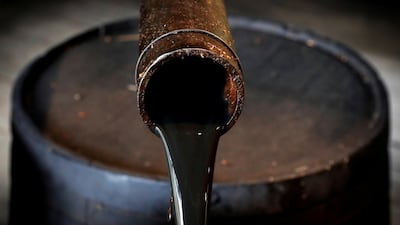An Opec and non-Opec technical committee will next week discuss proposals for sharing out an oil-output increase, sources familiar with the matter said, a tense topic for the producer group after it decided in June to ease supply curbs.
A panel, called the Joint Technical Committee, will on Tuesday consider proposals on distributing the agreed output increase of 1 million barrels per day (bpd), the sources said.
"The talks will look at various mechanisms" to reach the required production level, a source said.
If resolved, the talks could lead to an easing of tensions within the Opec. Iran had been against the June decision, which came amid pressure from the US president Donald Trump to reduce oil prices.
_______________
Read more:
'Opec is doing its part,' says UAE's Mazrouei
How Saudi Arabia plans to price its oil
_______________
There are four proposals on how to distribute the increase, presented by Iran, Algeria, Russia and Venezuela, one of the sources said, suggesting agreement will not be straightforward.
One idea, to share it pro-rata among participating countries, is unlikely to be approved by Russia and Saudi Arabia since it would give them less than the supply boosts of 300,000 and 400,000 bpd that they respectively want, the source said.
Opec, Russia and other non-members agreed in June to return to 100 per cent compliance with oil output cuts that began in January 2017. Months of underproduction in Venezuela and elsewhere had pushed adherence above 160 per cent.
The June meeting was concluded with a deep disagreement between Saudi Arabia and Iran, long-time rivals in Opec.

